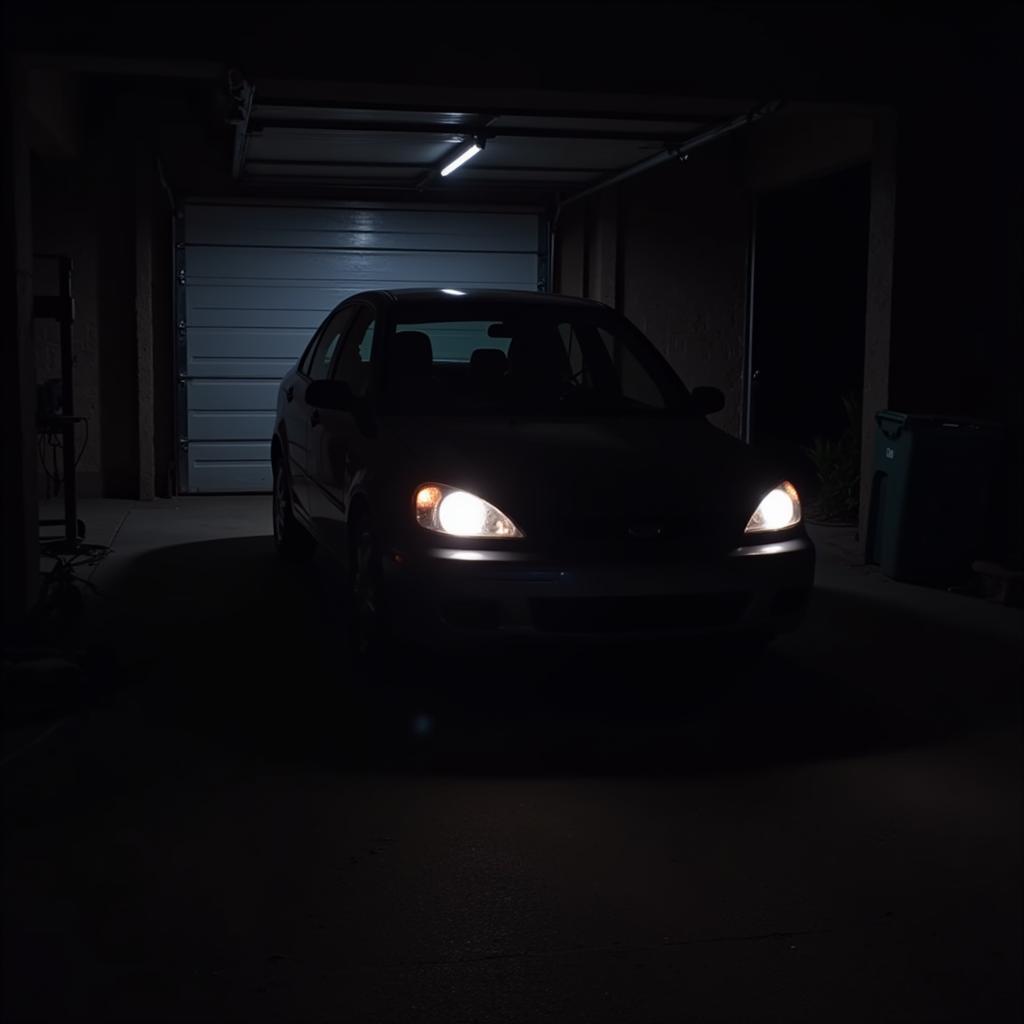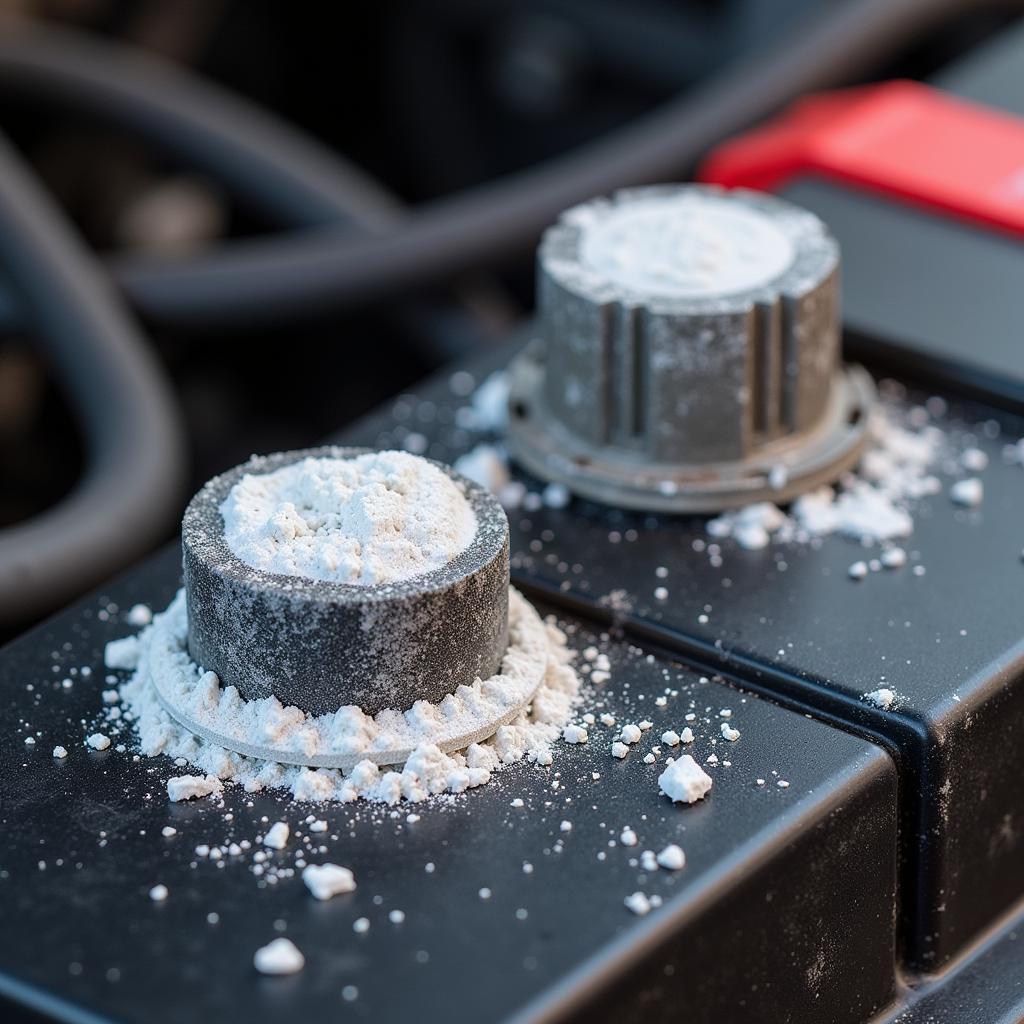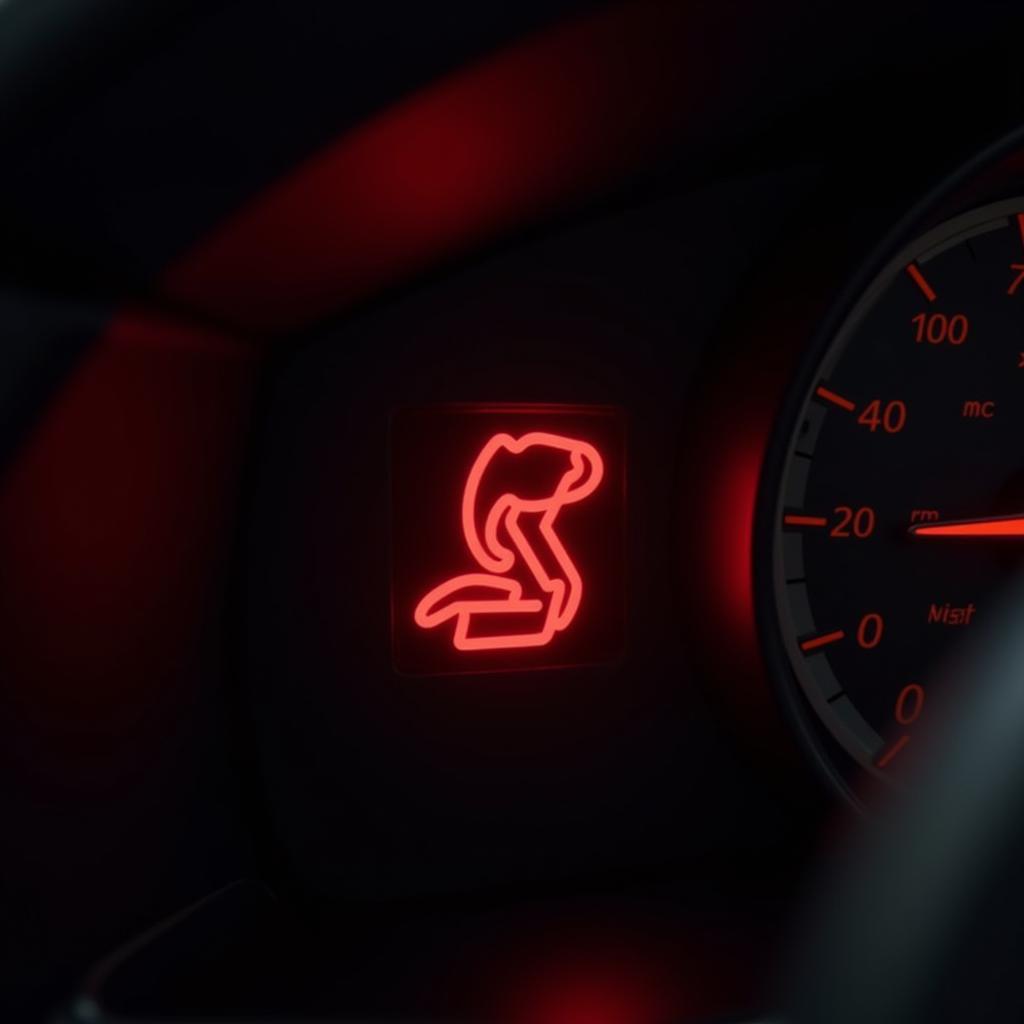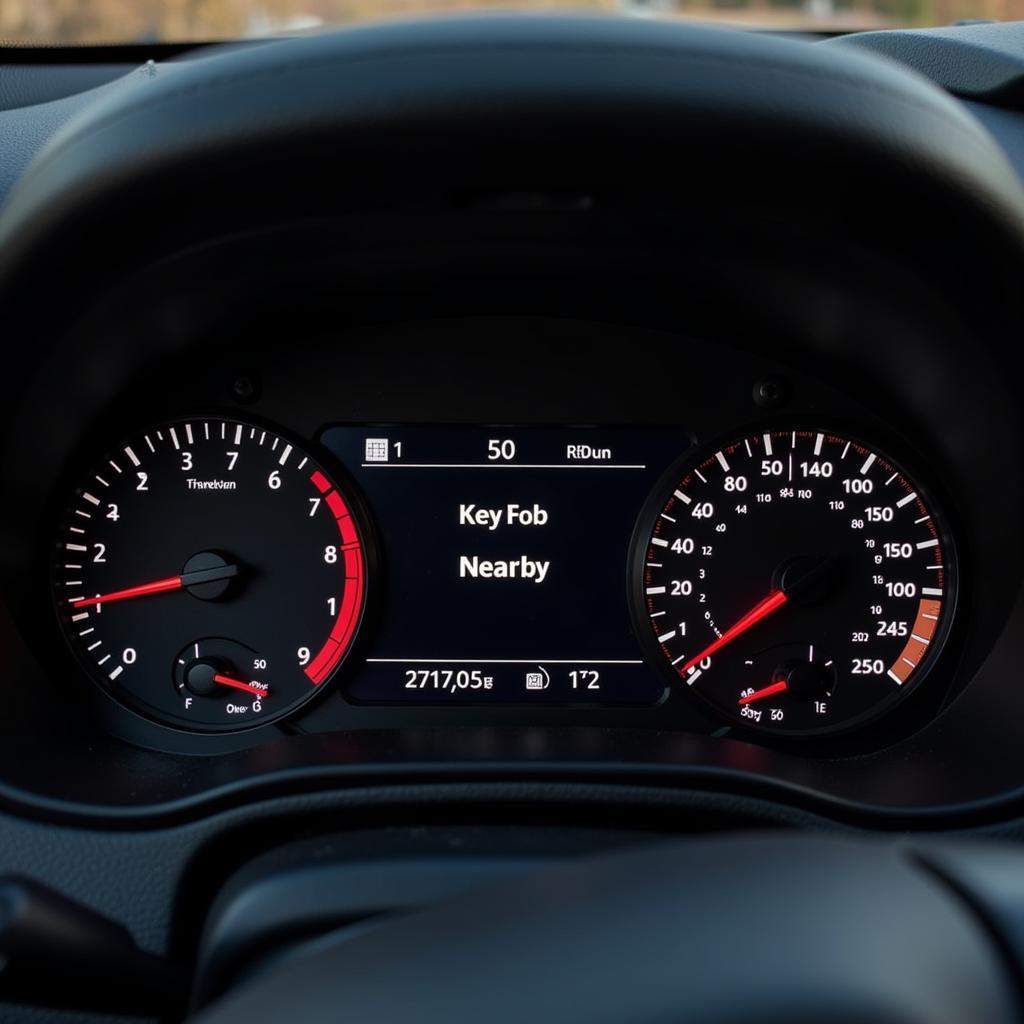A dead car battery is a frustrating experience. Understanding car battery discharge reasons can help you prevent this problem and keep your vehicle running smoothly. This article delves into the common and not-so-common causes of car battery drain, offering practical solutions and preventative measures.
 Car battery discharging at night due to parasitic drain
Car battery discharging at night due to parasitic drain
Common Car Battery Discharge Reasons
Several factors can contribute to a discharged car battery. Some of the most frequent culprits include:
- Leaving lights on: Headlights, interior lights, or even a trunk light left on can drain your battery overnight. This is an easy fix – simply double-check all lights before exiting your vehicle.
- Extreme temperatures: Both extreme heat and cold can affect battery performance. Heat can cause the battery fluid to evaporate, while cold temperatures can slow down chemical reactions within the battery.
- Old age: Like any component, car batteries have a lifespan. A typical battery lasts 3-5 years. As the battery ages, its ability to hold a charge diminishes.
- Short trips: Short trips don’t allow the alternator enough time to fully recharge the battery after starting the engine. This can lead to a gradual discharge over time.
- Corroded terminals: Corrosion on the battery terminals can disrupt the flow of electricity, leading to starting problems and battery drain.
 Close-up view of corroded car battery terminals
Close-up view of corroded car battery terminals
Less Obvious Car Battery Discharge Reasons: Parasitic Drain
Sometimes, a car battery drains even when everything seems turned off. This is often caused by a “parasitic drain,” which refers to a constant, small electrical draw from a component even when the car is off. Identifying the source of a parasitic drain can be tricky. Some common culprits include faulty wiring, malfunctioning modules (like the radio or alarm system), and aftermarket accessories. If you suspect a parasitic drain, a professional diagnosis is recommended. Have you ever had a dead battery and your car won’t start? Check out this article on dead battery car won t start for troubleshooting tips.
How to Identify a Parasitic Drain
- Measure the current draw: Use a multimeter to measure the current draw with the car off and all accessories turned off. A reading higher than 50 milliamps might indicate a parasitic drain.
- Check fuses: Pull fuses one by one while monitoring the multimeter reading. A drop in current when a specific fuse is removed can help pinpoint the circuit causing the drain.
- Inspect wiring: Look for damaged or frayed wiring that may be grounding out and causing a drain.
Preventing Car Battery Discharge
Taking preventative measures can help extend the life of your battery and avoid the inconvenience of a dead battery. Here are some tips:
- Regularly clean battery terminals: Clean corroded terminals with a baking soda and water solution.
- Limit short trips: If possible, combine short trips or take longer drives to allow the alternator to fully recharge the battery.
- Turn off all accessories before exiting the vehicle: Double-check that all lights, radio, and other accessories are off.
- Have your battery tested regularly: A simple battery test can identify potential issues before they become major problems. A failing battery might require a jump start. Learn more about jump starting your car in this article on how to jump start a car.
- Consider a battery maintainer: A battery maintainer can help keep the battery charged during periods of inactivity, especially in extreme temperatures. Do you find that your car remote key battery drains fast? Discover the reasons and solutions in our dedicated guide.
“Regular battery maintenance is crucial for avoiding unexpected breakdowns,” says John Smith, Automotive Electrical Engineer at AutoTech Solutions. “A simple voltage check can save you a lot of trouble down the road.”
Why is my car battery draining fast?
A fast draining car battery can be due to several factors, including a faulty alternator, parasitic drain, or leaving lights on. For a deeper dive into this issue, read our article on car battery draining fast. Sometimes, a battery dead after sitting overnight can indicate a serious problem.
“Ignoring a consistently discharging battery is like ignoring a warning light on your dashboard,” advises Sarah Jones, Lead Technician at CarCare Experts. “It’s always best to address the issue promptly to avoid further complications.” Even with a new battery and alternator, starting problems can persist. Explore possible reasons in our article about situations where you have a new battery new alternator still wont start.
Conclusion
Understanding car battery discharge reasons can help you proactively address potential problems and maintain a healthy battery. By following the preventative measures outlined in this article and addressing any issues promptly, you can ensure your car starts reliably every time. Regular maintenance and awareness of potential car battery discharge reasons will keep you on the road and avoid the frustration of a dead battery.



